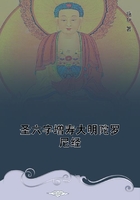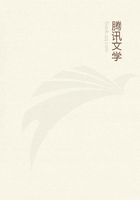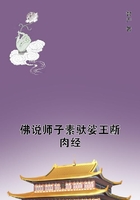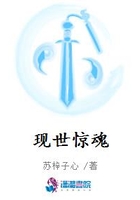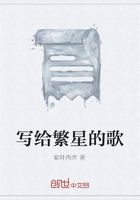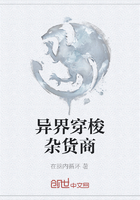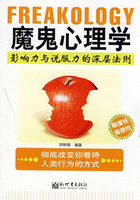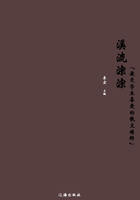Shakespeare, M. of V. i. 2. 96: "an the worst fall that ever fell, I hope I shall make shift to go without him."319. But scarce again, etc. The MS. reads:
"The bugle shrill again he wound, And lo! forth starting at the sound;"and below:
"A little skiff shot to the bay.
The hunter left his airy stand, And when the boat had touched the sand, Concealed he stood amid the brake, To view this Lady of the Lake."336. Strain. The 1st ed. has a comma after strain, and a period after art in 340. The ed. of 1821 points as in the text.
342. Naiad. Water nymph.
343. And ne'er did Grecian chisel, etc. The MS. reads:
"A finer form, a fairer face, Had never marble Nymph or Grace, That boasts the Grecian chisel's trace;"and in 359 below, "a stranger tongue."
353. Measured mood. The formal manner required by court etiquette.
360. Dear. This is the reading of the 1st ed. and almost every other that we have seen. We are inclined, however, to believe that Scott wrote "clear." The facsimiles of his handwriting show that his d's and cl's might easily be confounded by a compositor.
363. Snood. The fillet or ribbon with which the Scotch maidens bound their hair. See on iii. 114 below. It is the rich materials of snood, plaid, and brooch that betray her birth.
The rhyme of plaid with maid and betrayed is not imperfect, the Scottish pronunciation of plaid being like our played.
385. One only. For the inversion, cf. Shakespeare, J. C. i. 2.
157: "When there is in it but one only man;" Goldsmith, D. V. 39:
"One only master grasps the whole domain," etc.
393. Awhile she paused, etc. The MS. reads:
"A space she paused, no answer came,--
'Alpine, was thine the blast?' the name Less resolutely uttered fell, The echoes could not catch the swell.
'Nor foe nor friend,' the stranger said, Advancing from the hazel shade.
The startled maid, with hasty oar, Pushed her light shallop from the shore."and just below:
"So o'er the lake the swan would spring, Then turn to prune its ruffled wing."404. Prune. Pick out damaged feathers and arrange the plumage with the bill. Cf. Shakespeare, Cymb. v. 4. 118:
"his royal bird Prunes the immortal wing," etc.
408. Wont. Are wont, or accustomed; now used only in the participle. The form here is the past tense of the obsolete won, or wone, to dwell. The present is found in Milton, P. L. vii.
457:
"As from his lair the wild beast, where he wons In forest wild, in thicket, brake, or den."Cf. Spenser, Virgil's Gnat:
"Of Poets Prince, whether we woon beside Faire Xanthus sprincled with Chimaeras blood, Or in the woods of Astery abide;"and Colin Clouts Come Home Againe:
"I weened sure he was out God alone, And only woond in fields and forests here."See also iv. 278 and 298 below.
409. Middle age. As James died at the age of thirty (in 1542), this is not strictly true, but the portrait in other respects is quite accurate. He was fond of going about disguised, and some of his freaks of this kind are pleasantly related in Scott's Tales of a Grandfather. See on vi. 740 below.
425. Slighting, etc. "Treating lightly his need of food and shelter."432. At length. The 1st ed. has "at last."
433. That Highland halls were, etc. The MS. has "Her father's hall was," etc.
434. Wildered. See on 274 above.
438. A couch. That is, the heather for it. Cf. 666 below.
441. Mere. Lake; as in Windermere, etc.
443. Rood. Cross, or crucifix. By the rood was a common oath;so by the holy rood, as in Shakespeare, Rich. III. iii. 2. 77, iv. 4. 165. Cf. the name of Holyrood Palace in Edinburgh. See ii. 221 below.
451. Romantic. The MS. has "enchanting."
457. Yesternight. We have lost this word, though we retain yesterday. Cf. yester-morn in v. 104 below. As far = as far back as.
460. Was on, etc. The MS. reads: "Is often on the future bent.""If force of evidence could authorize us to believe facts inconsistent with the general laws of nature, enough might be produced in favor of the existence of the second-sight. It is called in Gaelic Taishitaraugh, from Taish, an unreal or shadowy appearance; and those possessed of the faculty are called Taishatrin, which may be aptly translated visionaries. Martin, a steady believer in the second-sight, gives the following account of it:--'The second-sight is a singular faculty of seeing an otherwise invisible object without any previous means used by the person that uses if for that end: the vision makes such a lively impression upon the seers, that they neither see nor think of any thing else, except the vision, as long as it continues; and then they appear pensive or jovial, according to the object that was represented to them.
'At the sight of a vision, the eyelids of the person are erected, and the eyes continue staring until the object vanish. This is obvious to others who are by when the persons happen to see a vision, and occurred more than once to my own observation, and to others that were with me. ...
'If a woman is seen standing at a man's left hand, it is a presage that she will be his wife, whether they be married to others, or unmarried at the time of the apparition.
'To see a spark of fire fall upon one's arm or breast is a forerunner of a dead child to be seen in the arms of those persons; of which there are several fresh instances. ...
'To see a seat empty at the time of one's sitting in it, is a presage of that person's death soon after' (Martin's Description of the Western Islands, 1716, 8vo, p. 300, et seq.).
"To these particulars innumerable examples might be added, all attested by grave and credible authors. But, in despite of evidence which neither Bacon, Boyle, nor Johnson were able to resist, the Taish, with all its visionary properties, seems to be now universally abandoned to the use of poetry. The exquisitely beautiful poem of Lochiel will at once occur to the recollection of every reader" (Scott).
462. Birchen. Shaded by birches. Cf. Milton's "cedarn alleys"in Comus, 990.
464. Lincoln green. A cloth made in Lincoln, much worn by hunters.
467. Heron. The early eds. have "heron's."
475. Errant-knight. Knight-errant.

